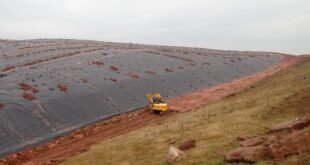Researchers at the business organisation calculated the figure by totting up the cost of the Labour Party’s proposals for nationalising water and energy firms, train operators and the Royal Mail. The eye-watering figure is more than the £190billion the Treasury collected in Income Tax in the last financial year and is only slightly less than the £202billion the Government spent on the entire health and education budgets for the same period.
Government debt could rise by more than 10% as a result of the massive extension in public ownership of the economy proposed by Labour.
It would raise the total Government debt to 94% of GDP, the highest level since the 1960s, costing around £2billion a year in interest payments.
The analysis said that Government’s assets would increase, and there would be the potential for revenue generated by utilities, but the study focused on the cost of renationalisation and did not seek to estimate potential benefits.
The report said confidence of international investors in the UK would be “severely hit” if Labour refused to pay full market value for the industries.
The study claimed that savers and pensioners could also suffer an estimated £9 billion loss to their holdings.
Rain Newton-Smith, CBI chief economist, said: “The price tag for Labour’s renationalisation plans is beyond eye-watering – close to £200 billion.
“And that’s only the starting point.
“It doesn’t take into account the maintenance and development of the infrastructure, the trickle down hit to pension pots and savings accounts, or the impact on the country’s public finances.
“There are so many other genuine priorities for public spending right now, from investing in our young people to the transition to low carbon economy and connecting our cities and communities.
“These issues are what keep businesses up at night and what they want to see the Government get on with addressing.
“Firms want politicians to invest in major infrastructure projects rather than undermine confidence in our economy and waste time, energy and public money in a renationalisation project with no clear benefits.
“Investment in skills, infrastructure and innovation is how we will enable firms to grow, create jobs, and raise living standards in communities across the country – not by returning to failed, ideological economics that would make millions of people poorer in their old age.”
The CBI said its analysis covered renationalisation for nine regional water and sewerage regional monopolies, the seven water-only companies in England, the National Grid for supplying electricity, the gas distribution network in England, Scotland and Wales, the rail rolling stock and the Royal Mail.
Water UK Chief Executive Michael Roberts said: “This important work by the CBI makes an iron-clad case against nationalisation, and is part of an ever-growing body of evidence showing what a bad idea it is.
“Privatisation of the water and sewerage industry has achieved a great deal over the last 30 years – nearly £160 billion of investment, a healthier environment, better water quality and improved service to customers.
“Customers are now five times less likely to suffer from supply interruptions, eight times less likely to suffer from sewer flooding, and 100 times less likely to have low water pressure than they were when the industry was in Government hands.
“Nationalisation would risk turning back the clock to the days when service and quality failures were far more common, and cash-strapped governments wouldn’t pay for the improvements needed.”
Labour officials claimed the report had used questionable estimates of company values to reach the figure.
A Labour spokesman said: “This is incoherent scaremongering from the CBI, which is bizarrely attacking Labour for compensating shareholders both too much and too little.
“It is disappointing that the CBI seems incapable of having a grown up conversation about public ownership – which is hugely popular, and common across Europe.
“It sadly reveals that they are more interested in protecting shareholders than in creating a fair economy.”
Source link


